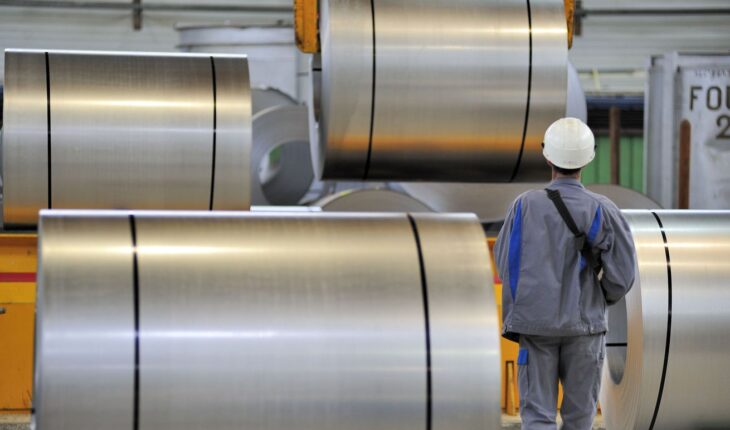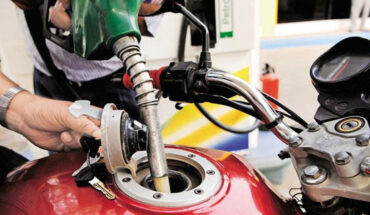NEW DELHI: A new policy that aims to achieve steel making capacity of 300 million tonnes by 2030 with an additional investment of Rs 10 lakh crore got the Cabinet green light on Wednesday.
The Cabinet also approved a policy for use of domestic steel products in government organisations.
“The Union Cabinet chaired by Prime Minister Narendra Modi has given its approval to the National Steel Policy (NSP) 2017,” the steel ministry said in a statement. “The Cabinet… has approved the policy for providing preference to domestically manufactured iron and steel products on government procurement,” the ministry said in another statement. The policy makes it mandatory to give preference to domestically manufactured iron and steel products (DMI&SP) in government procurement. The policy is applicable to all government tenders where price bid is yet to be opened. “The DMI&SP policy provides a minimum value addition of 15 per cent in notified steel products which are covered under preferential procurement. In order to provide flexibility, the Ministry of Steel may review specified steel products and the minimum value addition criterion,” it said. The NSP enshrines a long-term vision to give impetus to the steel sector. It seeks to boost domestic steel consumption and ensure high quality steel production and create a technologically advanced and globally competitive steel industry. The policy projects crude steel capacity of 300 mt, production of 255 mt and robust finished steel per capita consumption of 158 kg by 2030-31, as against the current use of 61 kg. “The policy also envisages domestically meeting the entire demand of high-grade automotive steel, electrical steel, special steels and alloys for strategic applications and increasing domestic availability of washed coking coal so as to reduce import dependence on coking coal from about 85 per cent to around 65 per cent by 2030-31,” the statement said. Steel Minister Chaudhary Birender Singh is confident that the policy will give a concrete shape to future plans and policies for the steel industry in India. “We have taken a holistic and comprehensive view of the steel sector in India and its key growth drivers to ensure sustainable growth of all segments of the industry,” he said. Thrust areas in the policy include raw material securitisation, import substitution, increasing production efficiency and enhancing steel consumption, he said. “I am confident that the policy will make the Indian steel sector more vibrant and competitive, and facilitate taking the steel industry to new heights of success,” the minister added. The potential of the MSME steel sector has been recognised, too. As per the policy, adoption of energy efficient technologies in the MSME steel sector will be encouraged to improve overall productivity and reduce energy intensity. The ministry will also ensure availability of raw materials like iron ore, coking coal and non-coking coal, natural gas etc at competitive rates. The policy envisages development of globally competitive steel manufacturing capabilities, cost-efficient production, facilitating foreign investment and asset acquisitions of raw materials. R&D in the sector will take spotlight through establishment of the Steel Research and Technology Mission of India (SRTMI). The initiative is aimed at spearheading R&D of national importance in the iron and steel sector utilising tripartite synergy among the industry, national R&D laboratories and academic institutes. “With the rollout of the National Steel Policy 2017, it is envisaged that the industry will be steered in creating an environment for promoting domestic steel and thereby ensuring a scenario where production meets the anticipated pace of growth in consumption through a technologically advanced and globally competitive steel industry,” it said. This will be facilitated by the steel ministry, in coordination with relevant ministries, as may be required. While implementing the policy, it puts trust in each domestic manufacturer that provides self-certification to the procuring government agency declaring that the products are domestically manufactured in terms of the value addition prescribed. It will not normally be the responsibility of procuring agency to verify the correctness of the claim. In a few cases, the onus of demonstrating the correctness of the same will be on the bidder when asked to do so. In case any manufacturer is aggrieved, a grievance redressal committee set up under the steel ministry will dispose of the complaint in four weeks. There are provisions in the policy for waivers to all such procurements where specific grades of steel are not manufactured in the country or the quantities as per the demand of the project cannot be met through domestic sources. The policy is designed to promote growth and development of the domestic steel Industry and reduce the inclination to use low quality, low cost imported steel in government-funded projects. It shall be the responsibility of every government agency to ensure implementation of the policy.—PTI






